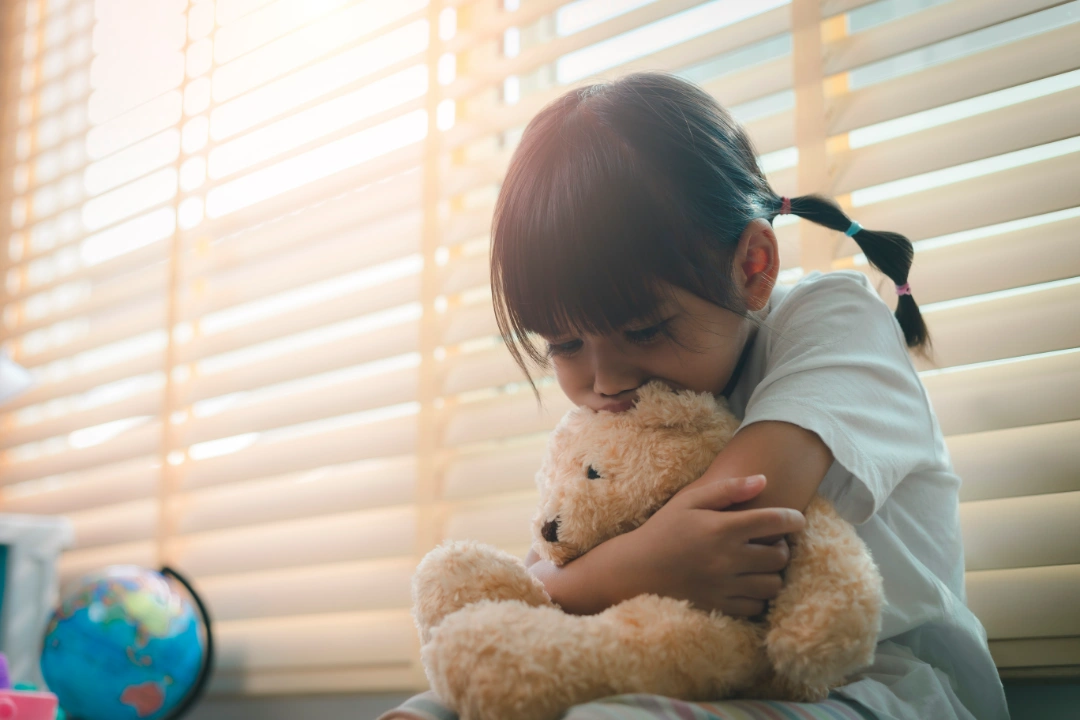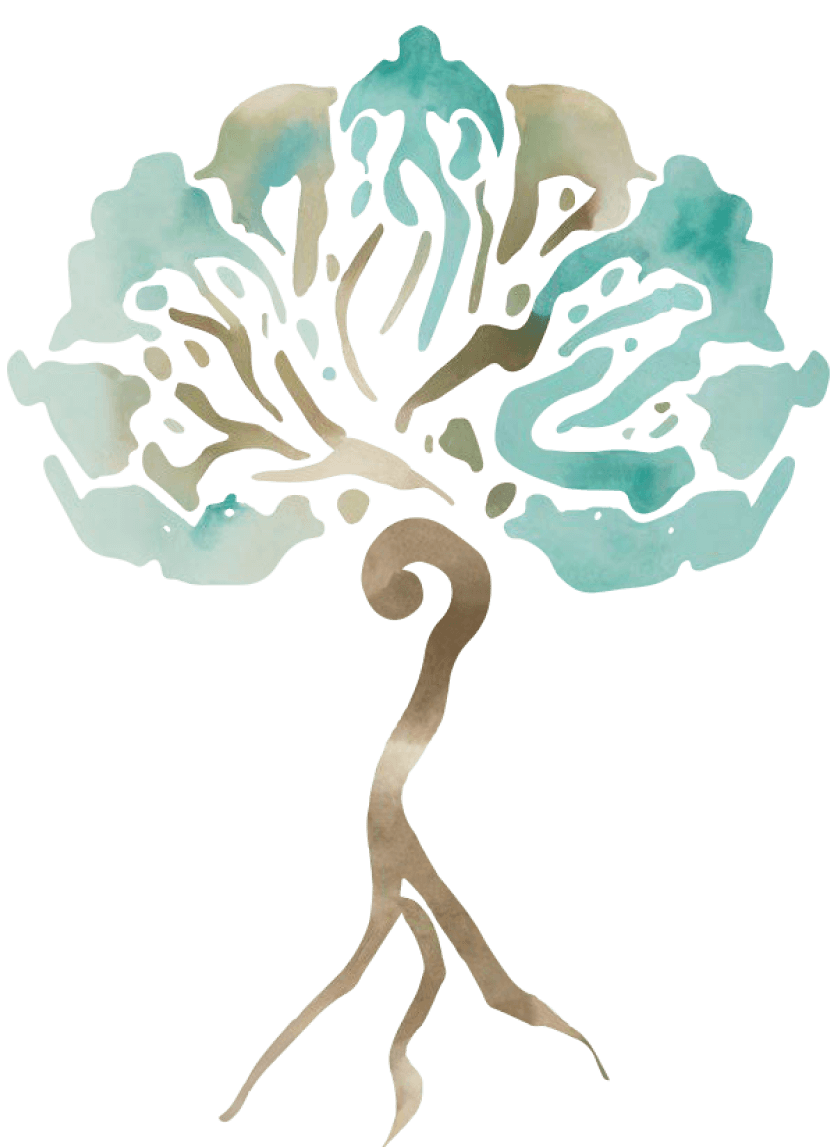Anxiety Disorders
There are different types of anxiety disorders, and they can affect children and adolescents, not just adults.
What are anxiety disorders in children and youths?
There are different types of anxiety disorders in Singapore, and they can affect children and adolescents, not just adults. It is normal for children to experience feelings of anxiety occasionally, especially during periods of change and stressful times such as starting a new school or parents getting separated. However, when these feelings start to interfere with their daily activities, such as social life, sleep, schoolwork, and relationships, they may be suffering from an anxiety disorder. It may be time to seek professional help if this is the case or if their anxiety seems to be getting worse.

Children who have already been diagnosed with Attention Deficit Hyperactivity Disorder (ADHD) and Autistic Spectrum Disorders are more likely to have problems with anxiety. However, even without these underlying conditions, children and youths can experience anxiety disorders at any time.
The following anxiety disorders are common in children and youths:
- Generalised anxiety disorder: Children and adolescents with generalised anxiety disorder often experience persistent concerns and worry excessively about everyday occurrences, causing them to feel insecure and constantly need reassurance from others. They may also have excessive fear of natural disasters or accidents or feel self-conscious and lack self-esteem, affecting their well-being and social life.
- Selective mutism: Children diagnosed with selective mutism disorder often speak freely and normally in familiar environments but become mute when around certain people or in specific settings. They may actively avoid eye contact as well. This disorder typically develops before the age of 10 in young children. It is important to know that selective mutism is not a diagnosis in itself and could be related to other mental health concerns. Research shows that there may be a link between other disorders, such as depression and social phobia, with selective mutism.
- Social phobia: Also known as social anxiety disorder, social phobia occurs when a child is excessively worried or fearful of rejection or embarrassment in social situations. Children and adolescents with this condition often worry about various scenarios, such as public speaking, class participation, starting conversations, and eating in public. Those with social phobia often skip school, keep to themselves, or avoid events that they are not required to attend. It is more prevalent in adolescents, with an average onset age of 13.
- Specific phobia: Children and youths with specific phobias may experience anxiety when they are near a certain object, person, or in a specific situation. Their anxiety and fear are so extreme that they may interfere with everyday activities such as eating and sleeping. They may experience a panic attack when exposed to the phobia. Some examples of specific phobias are fear of animals, flying, blood, hospitals, and insects.
- Obsessive-compulsive disorder: Children and youths diagnosed with Obsessive-Compulsive Disorder (OCD) often do repetitive actions like washing, counting, or organising and arranging things. These actions are a response to unwanted and intrusive thoughts that they can’t get rid of. These behaviours may interfere with their relationships and cause embarrassment. If left untreated, OCD may lead to other disorders, such as depression. OCD can start at any age, but it often shows up between 8 and 12 years old or in late adolescence and early adulthood.
- Separation anxiety: Children with separation anxiety disorder often feel scared and upset when they’re away from their parents or family. Their intense fear often affects their ability to have social relationships and concentrate on academics. Examples include when a child is afraid and gets very upset when they have to go to school or playdates. They might also have trouble making friends, and may even have school refusal.
- Panic disorder: Children or youths may have a panic disorder if they often feel terrified and uncomfortable in certain situations. They may experience panic attacks, which cause symptoms such as tingly feelings, fast heartbeat, and trouble breathing. It may cause anxiety about visiting certain places that trigger these sensations. Panic disorder often starts during the teenage years, but it can begin in childhood, too.
What causes anxiety disorders in children and youths?
There are many causes of anxiety disorders in children and youths. It may be due to biological reasons such as genetics or chemical imbalances in the brain or environmental factors such as personal trauma. Factors that often lead to anxiety disorders in children and youths include:


- Genetics: If there is a family history of anxiety disorders, children may likely develop it, too.
- Personality traits: Some children have personality traits that make them more anxious or sensitive, making them prone to anxiety disorders.
- Brain chemistry: Imbalances in brain chemicals may play a role in causing anxiety in children.
- Peer pressure: Academic pressures, bullying, or problems with friends can contribute to anxiety.
- Medical conditions: Chronic illnesses or health issues can sometimes be linked to increased anxiety in children.
- Traumatic experiences: Going through difficult or traumatic life events, like accidents or disasters, can trigger anxiety. Big life changes, such as moving or family changes, can also be stressful and lead to anxiety in some children.
What are the symptoms of anxiety disorders in children and youths?
It may be hard to tell if your child has an anxiety disorder or if they are displaying normal feelings of anxiousness or worry. Children and youths may also not have the vocabulary to accurately describe what they are experiencing. They may present with the following symptoms:
- Excessive worrying: They often worry a lot about everyday things as well as rare situations such as plane crashes or natural disasters.
- Physical symptoms: Children with anxiety may also have physical symptoms such as headaches, giddiness, stomachaches, or fatigue.
- Sleep issues: They may often have trouble sleeping, bed wetting, or nightmares.
- Social avoidance and anxiety: They may avoid things they used to do because of fears or worries. They may also avoid social situations and people, including their peers.
- Restlessness: For some anxiety disorders, children may be very fidgety and struggle to stay still.
- Irritability: Children with anxiety may get frustrated or moody easily.
- Perfectionism: Those with disorders such as OCD may often have intense feelings about doing things perfectly.
- Fear of separation: Feeling very scared about being away from parents or home is common for those with separation anxiety.
- Difficulty concentrating: Struggling to concentrate and focus on schoolwork is a common symptom of anxiety disorders.
- Panic attacks: Having trouble breathing and having symptoms like giddiness and chest pain is linked to anxiety.
If your child or adolescent is showing signs as above, or you suspect they are experiencing high levels of anxiety, seek professional help as soon as possible. Contact us now for an appointment.

Who is at risk of anxiety disorders in Singapore?
In Singapore, children and youths are at risk of developing mental health disorders such as anxiety. A survey in 2023 found that Singaporean children and young adults missed an average of 24 days of school in 2022 due to depression and anxiety. Additionally, two out of three made unplanned visits to an emergency department, and more than half were hospitalised over the past year due to these issues.
As anxiety is a problem for adults in Singapore as well, anxiety disorders can exacerbate in adulthood if left untreated. Therefore, parents should be vigilant and provide professional treatment for their children if they are showing signs of anxiety.
Risk factors of anxiety in children and youth in Singapore include:
School pressures
The school environment can be very competitive in Singapore, leading to high levels of stress that can cause anxiety for some children and youths. Parents may also pressure their children to do well in school and other activities, leading to anxiety.
Family issues
If there are problems or changes in the family, it can make children feel worried and anxious, leading to disorders.
Peer and social pressure
Trying to fit in with friends, worrying about what they might think, and comparing themselves with others may cause anxiety.
Traumatic events
Going through life-changing events such as the loss of a parent, moving, bullying, witnessing a scary event, or other traumatic events for a child can potentially lead to anxiety disorders.
Genetics
Having a parent or family member with anxiety is a risk factor for developing anxiety.
Medical conditions
Children with chronic chronic illnesses may be at risk for mental health issues such as anxiety.
How are anxiety disorders in children and youths diagnosed?
Anxiety disorders in children and youths are often diagnosed through a thorough mental health evaluation. A psychiatrist or psychologist who is trained in child and adolescent mental health can find out if your child is experiencing anxiety and which disorder they have (if any). They will talk to you and your child, ask questions, and listen carefully to their symptoms.
What are the treatment options for anxiety disorders in Singapore?
In Singapore, treatment options for anxiety disorders in children typically involve a combination of different approaches. Treatment may include medication as well. The specific treatment plan often varies depending on the child’s symptoms.
In general, treatment options for anxiety disorders for children and youths in Singapore include:


- Counselling: Professional counselling or psychotherapy, such as cognitive-behavioural therapy (CBT), is often used to help children with anxiety disorders
- Play therapy: For young children, play therapy is often used to express their feelings and fears and help therapists understand underlying issues.
- Medication: In some instances or when other interventions have not worked, medication may be prescribed by a psychiatrist or paediatrician.
- Mindfulness and relaxation: Teaching children mindfulness and relaxation techniques can help them manage stress and anxiety. These techniques include deep breathing exercises, meditation, or guided imagery.
- Family therapy: In situations where family dynamics are causing anxiety, family therapy may be recommended to improve communication and address underlying family issues.
Frequently asked questions
At what age do anxiety disorders start?
Anxiety disorders can start at any age, but in general, separation anxiety disorder, specific phobia, and social phobia often begin before 15 years of age. In contrast, OCD and generalised anxiety disorder tend to start when the child is older.
How can I treat my child’s anxiety naturally?
Your child’s psychiatrist or doctor can help you manage your child’s anxiety naturally by talking to them, planning daily activities, setting routines, and teaching meditation and mindfulness.
Can parents cause anxiety in children?
When parents adopt an overly controlling approach, often with the best intentions at heart, it can inadvertently lead to increased stress and anxiety in their children. This pressure can manifest in concerns over academic achievements and personal performance, contributing to an atmosphere of fear and worry. Additionally, the manner in which parents manage their own stress can influence their children’s anxiety levels. Speak to your child’s doctor or psychiatrist if you feel that you are causing anxiety in your children.

Reach out towards recovery
Readily available help
There are numerous resources catered specifically for young adults, including counselling services at colleges and universities, and employee assistance programs (EAP) at many workplaces.
Confidentiality
We respect your privacy—any discussions you have with us are kept strictly confidential.
Holistic wellbeing
Your mental health matters just as much as your physical health. Taking care of your mind is a crucial part of your overall wellbeing.

